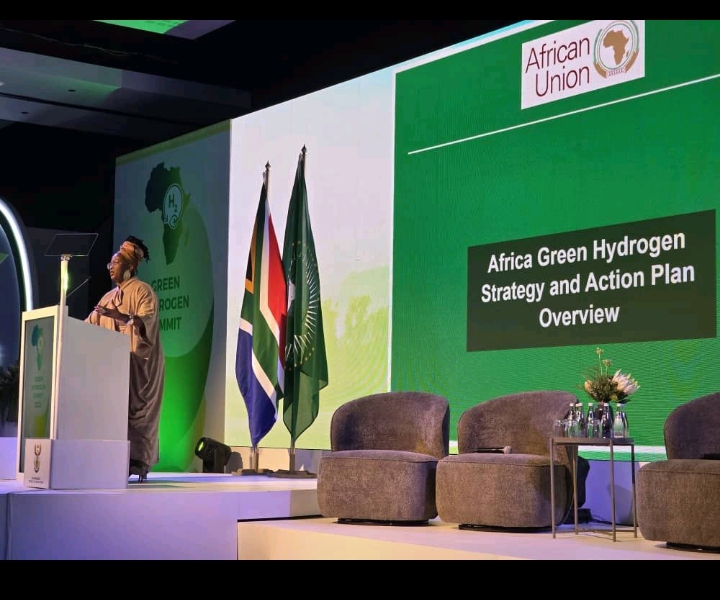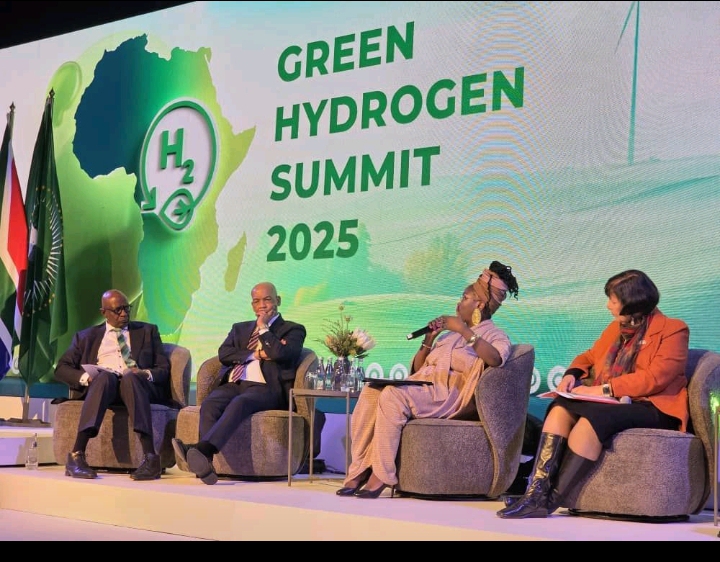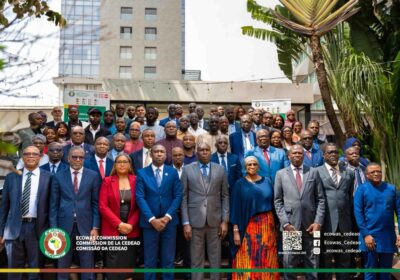Africa’s Green Hydrogen Strategy Unveiled as AU Summit takes Bold Step Toward Sustainable Energy.
By Raymond Enoch
The African Union (AU) has officially launched its comprehensive Green Hydrogen Strategy at the Africa Green Hydrogen Summit (AGHS) 2025, held in Cape Town.
This strategic framework positions Africa as a formidable contender in the global green hydrogen market, aiming to harness the continent’s abundant renewable energy resources to drive industrial growth, job creation, and energy security.

Under the theme “Unlocking Africa’s Green Hydrogen Potential: From Vision to Scalable, Inclusive Action,” the summit brought together policymakers, industry leaders, and international stakeholders to chart a path for Africa’s green hydrogen future. The strategy, adopted by the AU Summit in February 2025, outlines a phased, inclusive approach that supports both domestic and export markets, fosters African value chains, and ensures no country is left behind. It emphasizes the development of enabling infrastructure such as storage, transport, and port systems, and harmonized regulatory frameworks to support Africa’s hydrogen competitiveness.
Her Excellency Lerato D. Mataboge, Commissioner for Infrastructure and Energy at the AU, highlighted that green hydrogen is not only a decarbonization tool but also a lever for industrial growth, job creation, and intra-African energy integration. She reaffirmed that Africa’s strategy is rooted in six principles, including social inclusion, long-term investment, and just energy transitions, fully aligned with Agenda 2063, the Programme for Infrastructure Development in Africa (PIDA), and the African Continental Free Trade Area (AfCFTA).

The summit featured a high-level panel discussion with leaders from South Africa, Namibia, Ethiopia, and Germany, focusing on scaling hydrogen production, building infrastructure, and securing equitable access to green energy benefits. The panel underscored the importance of regional cooperation and shared infrastructure to maximize the continent’s hydrogen potential.

Africa’s green hydrogen sector is gaining momentum, with over 58 projects in development across the continent. Countries like Namibia, South Africa, Morocco, and Egypt are leveraging their abundant renewable energy resources to produce hydrogen, attracting major investments from global energy players. The EU’s REPowerEU plan aims to import 10 million tonnes of green hydrogen from Africa annually, signaling ongoing efforts to integrate Africa into the global hydrogen economy.
However, challenges remain, including high initial investment costs, inadequate infrastructure, and evolving technology. Many African countries struggle with limited financial resources, which slows project development and scalability. Weak energy grids further hinder efficient hydrogen production and distribution, while policy and regulatory uncertainties create market instability and discourage investment.
The AU’s Green Hydrogen Strategy aims to address these challenges by fostering collaboration among African nations, attracting international partnerships, and ensuring that the benefits of green hydrogen development are equitably distributed across the continent. As the summit continues, the African Union remains fully engaged in hosting sessions, convening partnerships, and reinforcing Africa’s voice in shaping the global hydrogen economy.
With its vast renewable energy potential and strategic geographic location, Africa is poised to become a global leader in green hydrogen production, driving sustainable development and economic growth across the continent.








